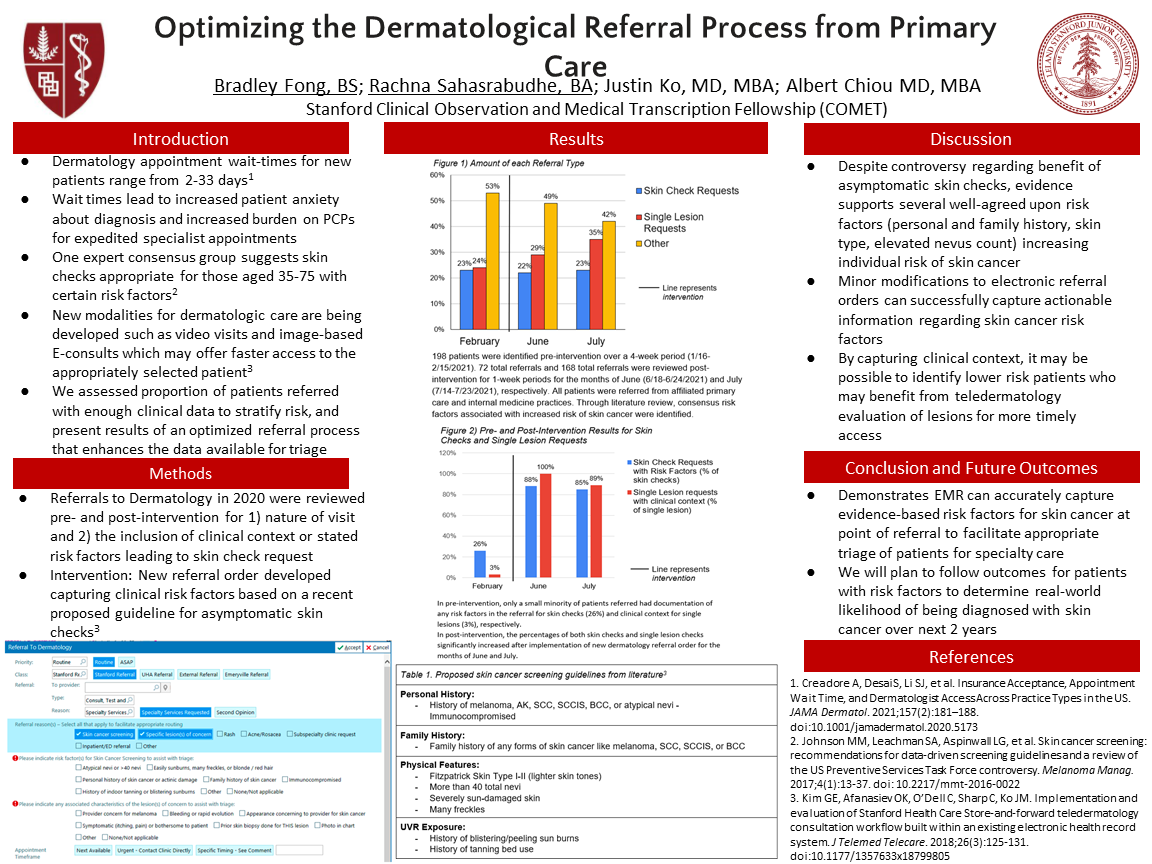PRP058: Optimizing the dermatological referral process from primary care
Bradley Fong, BS; Rachna Sahasrabudhe, BA
Abstract
Skin cancer screenings and rapid evaluation of lesions of concern are integral in the early detection of skin cancers, including melanoma. Nationally limited access to rapid dermatologic evaluation can result in increased wait times for specialist input for referred patients with skin cancer risk factors or concerning lesions identified by primary care providers. We investigate one potential systems-based intervention to address this challenge of dermatologic access by evaluating the feasibility of risk-stratifying patients’ likelihood of having a skin cancer at the point of referral from primary care. With known risk factors solicited at the earliest opportunity, appropriate patients can potentially be triaged to faster digital care pathways for lesional evaluation, thus reducing access demands on clinics while enabling faster recommendations to referring primary care physicians and their patients. This study focused on adult patients referred for dermatologic care originating from an academic primary care-based practice network. The inclusion criteria for this study were patients referred for skin cancer screening, evaluation of single skin lesion or other skin-related concern during the month of March 2021, and included 198 patients. We identified few referrals containing documented risk factors or other reasons for screening for patients referred for skin cancer screening or single lesion evaluations (26% and 6%, respectively). To improve the availability of clinically actionable information at point of referral, we designed an electronic dermatology referral form that solicits discrete clinical characteristics and evidence-based risk factors pertinent to the reason for referral using input from both primary care physicians and dermatologists. We then assessed post-intervention quantity of referrals that contain clinically actionable risk factors and related reasons for referral. We propose a framework for utilizing this clinical data to facilitate developing risk-stratified care pathways, matching referred patients to traditional in-clinic full body skin exams versus alternative digital methods that have the advantages of more rapid turnaround/feedback to patients and referring doctors, based on a patient’s anticipated risk of requiring an in-office skin biopsy.

Diane Harper
harperdi@med.umich.edu 11/21/2021Thank you for sharing with us at NAPCRG.